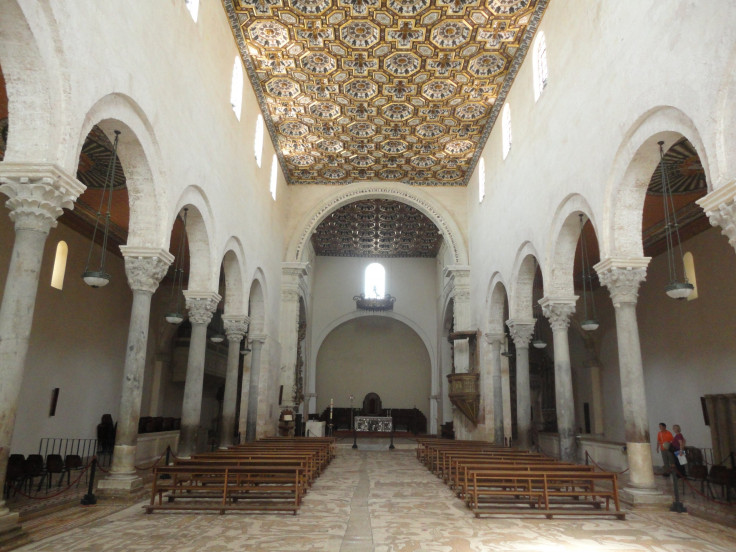Statement To Muslims? Pope Francis To Canonize 800 Martyrs Murdered By Ottoman Turks

In a move that may annoy some in the Muslim world, Pope Francis plans to canonize 800 Italian laymen who were massacred by Ottoman Turkish soldiers during the historic siege in the southern Italian city of Otranto in 1480.
The canonization service, the very first by the new pope, will be held on May 12 in St Peter’s Square, reported Britain’s Catholic Herald newspaper.
The Daily Telegraph reported that this ceremony will set a new record for the highest number of saints canonized at any one time by the Church.
During the week-long siege of Otranto more than five centuries ago, Ottoman soldiers were instructed to murder all men above the age of 15 for refusing their demands to convert to Islam. According to historical accounts, one of the martyrs, Antonio Primaldo, a tailor, declared: “We believe in Jesus Christ, Son of God, and for Jesus Christ we are ready to die.”
Primaldo was soon beheaded for his troubles. The names of the other martyrs are lost to history.
The Cathedral in Otranto is today adorned with the skulls and other relics of the martyrs.
Pope John Paul II visited Otranto in 1980 to observe the 500th anniversary of the massacre. At that time the Pope praised the city’s medieval residents who resisted the Turks’ threats.
However, the martyrdom of Primaldo and his fellow natives of Otranto were not recognized until 2007 by Pope Benedict XVI who said they were “killed out of hatred for the faith.”
Benedict also identified a miracle related to the Otranto saga: a nun whose cancer was miraculously healed after she paid a pilgrimage to the martyr’s relics in Otranto in 1980.
The siege of Otranto, launched by Sultan Mohammed II of Turkey, was eventually stopped by the forces of the King of Naples. Mohammed’s forces, who had already captured Constantinople (present day Istanbul), failed to reach their next intended target, Rome.
Now, in the early 21st century, highlighting the Otranto massacre must be viewed within the context of still fragile ties between the West and Islam.
A conservative Italian senator named Alfredo Mantovano, who wrote about the Otranto siege in 2007, compared it with the present state of relations between Europe and Islam.
“All of this [the Otranto massacre] took place because of the indifference of the political leaders of Europe to the Ottoman menace,” he wrote, the Telegraph cited.
“In Otranto, no one displayed rainbow pacifist flags, nor invoked international resolutions … Today Europe is under attack, not by an institutionally organized Muslim phalanx but by a patchwork of non-governmental organizations of fundamentalist Muslims.”
Damian Thompson, a columnist for the Telegraph in Britain, pointed out that Pope Francis has had warm relations with Muslims and has sought to reach out to global Islamic communities. He wonders how the mass canonization of Christians who died at the hands of Muslims from more than 500 years ago will affect his campaign to heal the rift between the faiths.
Indeed, upon his election as Holy Father, Francis was widely embraced and congratulated by Muslims on hopes of deeper dialogue between Christendom and Islam.
As a cardinal from Argentina, Francis had even condemned some negative remarks that his predecessor, Benedict, had made about Islam.
In March, during an audience before the Diplomatic Corps in Rome -- which included some Muslim leaders -- Francis said: “In this work, the role of religion is fundamental. It is not possible to build bridges between people while forgetting God.
“But the converse is also true: It is not possible to establish true links with God, while ignoring other people. Hence it is important to intensify dialogue among the various religions, and I am thinking particularly of dialogue with Islam.”
© Copyright IBTimes 2024. All rights reserved.




















